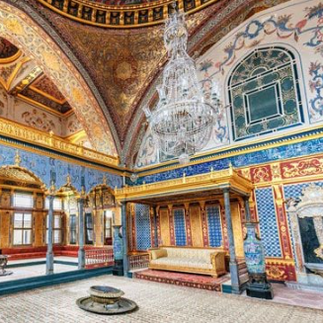Istanbul Pleasure
- Carl Boniface
- 24 de abr. de 2023
- 3 min de leitura
Once upon a time there was the “Sultan’s of swing,” a song composed by the British band called Dire Straits in the 80s. Written by the lead vocalist, Mark Knopfler it is about guys who go to a pub after work, listen to music and have a good time.
Not shared in the song, the truth behind the sultans of swing which has another meaning linked to Sultans, absolute rulers from the Ottoman period. They were like the emperors of the Turkish territory from 1299 to its dissolution in 1922. They were the heads of the state and heads of the government, and their words were the Law. They were the political, military, judicial, social, and religious leaders.
Visiting Istanbul alone for a few days before meeting up with my family in Israel in 2007, I was fortunate enough to experience a city jam-packed with a completely different culture, full of historical sights, and thrilling atmosphere. Those few days brought me to a curious conclusion to what it must have been like living as a Sultan.
From its foundation to its fall, Ottoman Turkey was under the rule of Kanun (Sultan’s secular law) and Islamic (Sharia) Law. This means that every walk of life was dominated by these two legal bases, including the regulation of women in the public and private spheres. That women have almost always been regarded with suspicion is axiomatic: the oppression they have been subjected to from time immemorial is now well-recorded by feminist historians among others.
Visiting outside of the Suleymaniye Mosque gave me a sense of how big the building was. It blew my mind away by its sheer size. This is a place of worship for Muslims that occupy 99% of the population. The Mosque, built during the reign of Suleiman the Magnificent, is one of the iconic mosques on the İstanbul's historical mosques list. Designed by Mimar Sinan between 1551 and 1557, the work is known as the journeyman work of the famous architect.
What really impressed me was the Topkapi Palace Harem that contained over 400 rooms in which resided the Sultan himself, the Valide Sultan, his wives and concubines, children, extended family and their servants. It was famously known for being the residence of the Ottoman Sultan and home to the harem and his court. There were sometimes between 400 and 500 concubines living in the palace at one time.
The image of prostitutes in particular has generated much interest across a range of disciplines. Yet there has been little commentary to date about prostitution in Ottoman Turkey. In reality, the sultans of swing says it all. They lived a life of pleasure to offset the responsibility and pressure of their responsibilities. The Sultans of swing were sexual predators!
Have a refreshing day!
Prof. Carl Boniface
Vocabulary builder:
Axiomatic (adj) = self-evident, obvious, manifest, accepted, clear, goes without saying
Immemorial (adj) = ancient, age-old, old, timeworn, long-establish, centuries old
Sheer (adj) = pure, utter, absolute, total, complete
The Valide Sultan = was the title held by the "legal mother" of a ruling sultan of the Ottoman Empire.
Harem (n) = (in former times) the separate part of a Muslim household reserved for wives, concubines, and female servants.
Concubines (n) = a woman with whom a man cohabits without being married: such as one having a recognized social status in a household below that of a wife.
Cohabits (v) = shares, live together, be roommates, have a joint household, be roomies, share a house






Comments